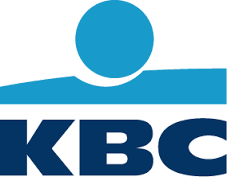Manufacturing embraces digital transformation
Apr-06-2021 By : fcccadmin
China will promote the deep integration of digital technology and the real economy, and empower the transformation and upgrading of traditional industries, so as to spur economic growth. Hailed as the “world’s factory,” south China’s Guangdong province is home to nearly 3 million industrial companies. Now the manufacturing hub is accelerating its digital transformation, exploring paths for the upgrading of its manufacturing industry. On a giant digital screen that simulates the factory’s digital operation in a microwave oven factory of Midea Group in Foshan city, red alarms flash to alert engineers to any problems with production equipment.The factory is one of the largest microwave oven production bases in the world, with an annual production capacity of over 44 million units. About 47% of the world’s magnetrons are produced here, making it a major component supplier for global microwave oven manufacturers. In March, the World Economic Forum listed the factory among the latest members of its Global Lighthouse Network, which selects plants leading the way in the adoption and integration of frontier technologies of the Fourth Industrial Revolution.
Zhou Xiaoling, Director of Information Technology at Midea Group, said thanks to digitalization, the factory has increased its overall internal efficiency by 28%, improved product quality indicators by 15%, and shortened order delivery time by 53%. “Midea started its digital transformation in 2012. Corporate revenue increased by CNY150 billion while the number of staff fell by 40,000 from 2012 to 2019,” Zhou said, adding that “digital transformation has injected strong development momentum into the traditional manufacturing sector.”
In Guangdong, a total of 15,000 firms have achieved digital transformation and 500,000 companies have gained access to cloud services, thanks to industrial internet platforms, according to the province’s Department of Industry and Information Technology. In recent years, companies such as Huawei, Midea, Tencent and Rootcloud have grown rapidly and helped promote the transformation of a large number of small and medium-sized enterprises (SMEs). According to Xu Zhijun, rotating Chairman of Huawei, by the end of 2020, the company had built more than 40 industrial internet innovation centers in China, providing digital transformation services for more than 20,000 enterprises in over 30 industrial clusters.
He Dongdong, CEO of Rootcloud, an industrial internet service provider headquartered in Guangzhou, said by working with other leading companies in the industry, Rootcloud has created more than 20 industry cloud platforms concerning construction machinery, environmental protection, textiles and home furnishings. It is now providing digital transformation services for companies in 81 industrial sub-sectors. “Digitalization marks a big leap for the traditional manufacturing industry. Since 2016, our business volume has been growing by 100% each year, which shows a strong demand for digital transfor?mation in the manufacturing industry,” He said.
But Ge Changwei, Director of the Guangdong Provincial Development and Reform Commission, said that more progress is required as only one-sixth of the nearly 3 million industrial enterprises in Guangdong have access to cloud services. Tu Gaokun, Director of the Guangdong Department of Industry and Information Technology, said that in the next step, Guangdong will launch technological research projects and demonstration applications in the fields of industrial software, artificial intelligence and intelligent manufacturing, and strive to provide more support for the digital transformation of the manufacturing industry, the Shanghai Daily reports.
China rushing to self-reliance in technological sectors
Mar-09-2021 By : fcccadmin
China is moving swiftly to determine potential weaknesses in dozens of technological sectors and draft a sweeping plan to address areas that are exposed to external risks, Chinese officials said, as the country aims to further bolster its rising technological prowess and counter a looming cut-throat race initiated by the U.S. over core technologies such as chips, software and raw materials that will determine the global power structure. Addressing the country’s over-reliance on foreign supplies of critical components has already become a hot topic in the week when the annual sessions of the NPC and CPPCC started, with lawmakers and political advisors making proposals and suggestions aimed at addressing various aspects of the issue, including increased government spending, talent building and other support measures. Ambitious goals and detailed policies are expected to come out of the two sessions, analysts said.
Xiao Yaqing, Minister of Industry and Information Technology, said that while China’s industrial capabilities were on full display during the Covid-19 pandemic, the process also exposed “certain shortcomings and weaknesses” in China’s industrial and supply chains. The Ministry has started conducting a full review of 41 sectors and map out key industrial chains to “find empty spots as well as our weaknesses,” Xiao said. “Fixing the chain is to fix our shortcomings and weaknesses, ensuring that the chain won’t break during crucial times.” Minister Xiao said at a press conference that China will focus on areas such as integrated circuit, core software, essential new materials and major equipment to address the “issue of the bottleneck.” “These are areas without alternatives if the U.S. decided to cut off supply. They are the most important core technologies that we have to master,” Fang Xingdong, Founder of the Beijing-based technology think tank ChinaLabs, told the Global Times. According to analysts, China is much too reliant on foreign supplies of chips and crop seeds, which have been called the “chips of agriculture”.
While China’s long-term development requires significant breakthroughs in core technologies, an escalating technology crackdown launched by the U.S., which has seen restrictions on supplies of chips and other crucial components to China, added urgency for China to address these “bottleneck” problems. The Biden administration plans to implement bans imposed by the previous U.S. administration on technology transactions with China and is also pushing to form tech alliances with allies to counter China in core technologies such as semiconductors and artificial intelligence (AI).
Currently, China imports about 90% of chips used in the country, worth around USD300 billion, but China is aiming to reverse that with 70% of chip supplies coming from domestic manufacturers by 2025, when China’s chip market could reach CNY2 trillion, compared to around CNY884.8 billion in 2020, according to Xiang Ligang, Director General of Information Consumption Alliance. “That is a very ambitious goal that will require massive investment in a lot of areas,” Xiang told the Global Times, adding that China’s investment in chip development has already increased sharply from around CNY30 billion in 2019 to CNY140 billion in 2020. “That level of investment will stay in place, if not rise further,” he said.
China has set a long-standing goal of increasing R&D expenditures. In 2020, China’s total R&D spending increased to CNY2.4 trillion from around CNY1.42 trillion in 2015. China is already the world’s second-largest spender on R&D and is rapidly closing the gap with the U.S. “Whether it is internal needs or external risks, what we can be certain of is that in the next five years and longer, China will deploy its massive national strength to achieve technological and supply chain independence, and I have no doubt we will have a completely different picture of the global technological power structure in the end,” Minister Xiang said, as reported by the Global Times.
China’s major chipmaker Semiconductor Manufacturing International Corp (SMIC) has received licenses to import equipment from some U.S. companies, but the U.S. is not expected to ease restrictions on SMIC for advanced chip technologies, such as 7-nanometer or smaller processes. The licenses involve technologies of 14 nm or larger. At present, there are 66,500 chip-related enterprises in China, and 22,800 of them were newly registered enterprises in 2020, a year-on-year increase of 195%, according to market information platform Qichacha. Since 2021, the growth has been more rapid, with 4,350 registrations in the first two months, a year-on-year increase of 378%.
SMIC also extended a deal with the Netherlands-based ASML Holding to pay USD1.2 billion for equipment purchases till the end of the year, which will ensure SMIC’s production capacity. ASML is the world’s largest supplier of photolithography devices needed by wafer plants to make chips and some of its equipment is not available from any other supplier. The deal means SMIC is capable of making chips with “mature technology” of up to 14-nanometer processing which can be used in automobiles, computers and some smartphones. Devices with advanced processing technology such as 7-nanometer are still subject to the U.S. tech ban.
China is positioned in the third tier of a four-tier global manufacturing hierarchy and is at least 30 years away from achieving its goal of becoming a strong manufacturing power. China’s manufacturing industry has made marked progress lately, but the general view that it is “big, but not strong” and “comprehensive, but not excellent” has not fundamentally changed, Miao Wei, former Minister of Industry and Information Technology, said in a speech at the two sessions. Miao highlighted problems restricting the high-quality development of China’s manufacturing industry. “Since the China-U.S. trade and technology conflict began, the supply chain has been disrupted, and now we need to rebuild the competitiveness of the industry and supply chains on our own,” Hong Tao, Director of the Institute of Business Economics at the Beijing Technology and Business University, told the Global Times, noting that the chip issue is also forcing China to make a change.
This overview is based on reporting by the China Daily, Shanghai Daily and Global Times.
Continued growth expected in the sharing economy
Mar-02-2021 By : fcccadmin
The growth rate of China’s sharing economy sector is expected to be between 10% and 15% this year, and maintain an average annual growth rate of over 10% in the coming five years, thanks to an expected strong recovery in the macro-economy, according to a report by the State Information Center (SIC). In 2020, amid challenges brought by Covid-19, new business modes featuring the sharing economy demonstrated tremendous resilience and development potential. The trade volume of the sharing economy for the year surged 2.9% year-on-year to CNY3.38 trillion. The pandemic’s influence on different areas of the sharing economy varied. The market volume of the sharing healthcare sector grew rapidly, with year-on-year growth of 27.8%. In contrast, the market volume of sharing accommodation, office-space and transportation dropped by 29.8%, 26% and 15.7%. “Sharing services and new consumption modes had been playing a critical role in boosting national economic resilience and vitality. Meanwhile, sharing economy platforms were constantly innovating business strategies and marketing modes, thus demonstrating various advantages,” said the report. In 2020, one major change for the country’s sharing economy sector was that more and more enterprises, which mainly served the consumer-end, expanded their businesses to the business-end.
Xiaozhu, a Beijing-based sharing accommodation website/app, signed a strategic partnership with Bytedance’s enterprise service platform Feishu last year, offering accommodation for business trips, corporate team-building exercises, and training conferences for registered enterprises on Feishu. Ziyouxin, a flexible employment platform under Tencent’s finance and taxation technology arm GoldenTec, actively responded to surging hiring requirements of enterprises during the pandemic. In February of last year, it launched an emergency recruitment service called “shared employees”, offering more than 10,000 workers to enterprises.
Another new feature highlighted in the report was that the sharing economy was further integrated with internet-based marketing approaches, creating more platform-user interaction and user stickiness. For example, in July, Xiaozhu teamed up with Xiaohongshu (Little Red Book), an Instagram-like Chinese fashion and lifestyle sharing platform, inviting key opinion leaders (KOLs) and key opinion consumers (KOCs) on the platform to share their accommodation experiences. Huang Wei at Xiaozhu’s public affairs department said: “KOLs and KOCs share their living experiences on Xiaohongshu, and interact with users in the online community, encouraging them to pay a visit to the recommended accommodations. In this way, a circulation running from online to offline is formed.”
Data from Xiaozhu showed that between July and November, the transaction volume brought by Xiaohongshu’s channels surpassed CNY10 million, and the monthly growth rate of gross merchandise volume (GMV) stood at 350%. By November 25, 1,610 sharing accommodation brands were registered on Xiaohongshu. “Online marketing communities such as Xiaohongshu can reach more potential users, creating more demand for travel and accommodation. Meanwhile, content platforms are further integrating with the tourism industry, bringing new traffic and growth opportunities,” Huang said.
“When the pandemic is over, the focus of enterprise competition lies in how they realize user retention and profit mode innovation. Efforts are needed in product innovation and service quality enhancement,” said the report. Fan Jiping, Director of the WeDoctor Digital Medical Consortium, said that in the post-pandemic era, there will be increasing market demand for high-quality services integrating online and offline modes of business. How to take advantage of digital technologies to build a service system that satisfies healthcare needs of various patient groups and raises the efficiency and level of the industry – that remains a key issue for us,” Fan said, as reported by the China Daily.
Week-long Chinese New Year holiday gives boost to retail and catering
Feb-23-2021 By : fcccadmin
During the weeklong Spring Festival holiday, key retail and catering enterprises nationwide posted combined sales revenue of CNY821 billion, up 28.7% year-on-year, the Ministry of Commerce (MOFCOM) said. Chinese tourists showed more interest in nearby destinations. In Beijing, there was a 730% increase in the number of in-city sightseeing, at 4.91 million, Beijing municipal tourism authorities said. Parks and winter sports venues in China’s cosmopolitan cities witnessed dense crowds unseen in other years and cinemas filled up. Online sales were brisk with the Chinese express delivery sector having delivered 365 million parcels in the first five days of the weeklong holidays, up 224% over the same period last year. China’s transportation sector handled 77.24 million passengers during the first six days of the Spring Festival holidays, including 17.47 million railway trips and 54.82 million road trips.
In response to government advice to “stay put” and avoid gatherings, many people chose to celebrate the most important festival of the year in the towns and cities where they live and work instead of going back to their hometown for family reunions. Lian Ping, Director of the Zhixin Investment Research Institute, estimated that between one-quarter and one-third of migrant workers heeded the calls to stay in the cities and shun holiday travel.
On-demand delivery platform Dada said that orders where the sender and the receiver are not in the same city doubled from last year as people sent gifts to family and friends in rural areas. Many orders came from Guangdong province where a large number of migrant workers are staying. According to online takeout platform Eleme.com, takeout orders for hot pot and milk tea increased by over 200% this year. There was also a 60% increase in the sales of gastrointestinal drugs and a 150% rise in sales of hangover remedies, Eleme data showed, as Chinese people would choose to eat rich food at dinner parties during the holidays. As consumption contributes about 65% of China’s economic growth, some believe robust holiday sales bode well for the economy in the coming months, paving the way for good first quarter and whole year figures.
As one of the most important shopping seasons, the Spring Festival Golden Week holidays saw sales revenues topping CNY1 trillion for the retail and catering sectors in 2019, one year before the virus struck. The country also received 415 million tourists during that period. In 2020, the sudden outbreak of the virus and China’s containment measures resulted in a 20.5% year-on-year drop in retail sales in January and February. Retail sales during the festival this year rose 28.7% year-on-year to reach CNY821 billion, data from the Ministry of Commerce (MOFCOM) said. Online sales exceeded CNY122 billion, with online catering sales surging 135% from last year as more Chinese ordered ready-to-eat meals through e-commerce or online food delivery platforms. Sales of imported chocolate on Tmall Global jumped this month for Valentine’s Day. Sales of imported chocolate increased by 337% year-on-year from February 4 to 15, with candy made in the UAE, Switzerland and Japan among the hottest items.
Sales by jewelry and clothing enterprises rose respectively by 160.8% and 107.1%, communication device and digital home appliance sales rose respectively by 39% and 29.9%, and sales of fitness devices by some e-commerce platforms increased 49% from a year ago. Cinema box office revenues during the 2021 Spring Festival holiday (February 11-17) exceeded CNY7.8 billion, up 32.5% from 2019, with new records set for ticket sales and attendance during the holiday, data from the China Film Administration showed.
The Chinese economy is forecast to grow by 8.2%, its fastest rate in nine years in 2021, as other major economies will likely continue to bear the brunt of the pandemic, according to a Global Times poll of 20 economists released in December. In its latest World Economic Outlook in January, the IMF projected China’s economy will grow 8.1% in 2021 while figure for the global economy is expected to be 5.5%, the Global Times reports. Ipsos’ February index of global consumer confidence noted that China’s consumer index surged 6.5 points year-on-year to 71.8 for February 2021, the largest growth among the 24 monitored economies. In comparison, the U.S.’ consumer sentiment index decreased by 12.6 points in February from one year earlier, the largest drop among all countries.
Stay-at-home economy expected to get a new boost
Feb-09-2021 By : fcccadmin
The blossoming stay-at-home economy is likely to break new ground in terms of growth and market size in China, as people have been encouraged to stay where they are for the Spring Festival holiday to stem the spread of Covid-19, the China Daily reports. Spring Festival, also known as Chinese Lunar New Year, is an important occasion for family reunions, with the first day of the new lunar year falling on February 12 this year. In China, consumer preferences have been shifting toward e-commerce and online entertainment and education for over a decade. The Covid-19 pandemic, however, has accelerated the trend and proven to be a boon to companies that serve the stay-at-home economy. Partly fueled by the contagion, China’s online sales surged 14.8% year-on-year to CNY9.8 trillion in 2020, making China the world’s largest online retail market for the eighth straight year.
Ahead of the Lunar New Year holiday that normally sparks the biggest mass movement of people on the planet, Chinese authorities advised migrant workers and residents to stay put, pledged to guarantee sufficient supplies of daily necessities, and asked e-commerce platforms and logistics companies to ensure normal operations during the period. “We expect to see demand for at-home consumption continue to explode this year, especially during the Lunar New Year holiday,” said Wang Nian, Associate Fellow with the Institute of Market Economy, which is part of the Development Research Center of the State Council. Online food delivery platforms, including Meituan and Ele.me, are working with popular catering brands to launch prepackaged and semi-packaged meals for the holiday so that younger generations will be able to celebrate the traditional festival with a feast that is easy to prepare. Merchants are also targeting different groups of people by providing customized take-away meal kits, such as single-person dinner packages and family reunion dinner packages for six to 10 persons, in a bid to attract more consumers. “The boom in online consumption will make up for the reduction in offline consumption,” Wang said.
Consumer spending during Spring Festival is likely to be less than in normal years due to measures to reduce travel. However, given the low comparison base in 2020, China will still report a year-on-year consumption growth during the holiday, Wang added, as reported by the China Daily.
The Global Times reports that jewelry shops in many cities and on online shopping platforms are seeing a shortage in supply of pricy gold jewelry and Kweichow Moutai Baijiu, or distilled liquor, as demand surges ahead of the Chinese New Year, according to interviews with sources at several shops and companies. “There are many more customers who came to buy gold before the holiday this year than last year. Since January, sales have already doubled or tripled those of last year,” a worker at a jewelry shop in Beijing said. Gold jewelry with the Chinese character for “happiness” is particularly popular this year, as many are seeking blessings and safety. Shops across the country have seen a huge surge in demand for gold jewelry in recent weeks, with some shops even seeing shortages and factories operating at maximum capacity. “Rising demand for gold products has a positive correlation with the recovery of our country’s economy. Economic recovery in a given place would drive up wealth and result in diversified asset allocation, namely increased gold purchases,” Zhang Chen, Analyst with First Futures. Last year, China’s gold consumption fell 18.13% year-on-year to 820.98 tons, with first quarter sales plunging nearly 50%, as the Covid-19 pandemic hit sales, according to the China Gold Association.
The Ministry of Commerce (MOFCOM) reported rising sales of food, recreational and fitness equipment such as mahjong tables and jump ropes. Pre-sales of cinema tickets are also soaring, reaching CNY400 million, with single-day box office sales for New Year’s Day on February 12 reaching CNY350 million, despite strict anti-epidemic rules. Retail sales could see a 10% increase during the holidays, compared to a 20.5% plunge during the same period last year, according to Hong Tao, Director of the Institute of Business Economics at Beijing Technology and Business University. Robust sales during the Chinese New Year will help lift consumption and in turn overall economic growth, analysts said, with some predicting a record high GDP growth rate of over 20% for the first quarter of 2021. However, much of that is due to the low base in the first quarter of 2020 and would not erase the continued struggle in some sectors, analysts added.
- KURT VANDEPUTTE (UMICORE) APPOINTED CHAIRMAN OF THE BOARD OF THE FLANDERS-CHINA CHAMBER OF COMMERCE (FCCC)
- Webinar: “Knowing Your Chinese Partner” – May 26, 2021, 10 am – 12 am
- EMA starts rolling review of CoronaVac, WHO approves Sinopharm vaccine for emergency use
- The Global Times warns not to politicize the Comprehensive Agreement on Investment (CAI)
- Hainan to become biggest duty-free market in the world



































